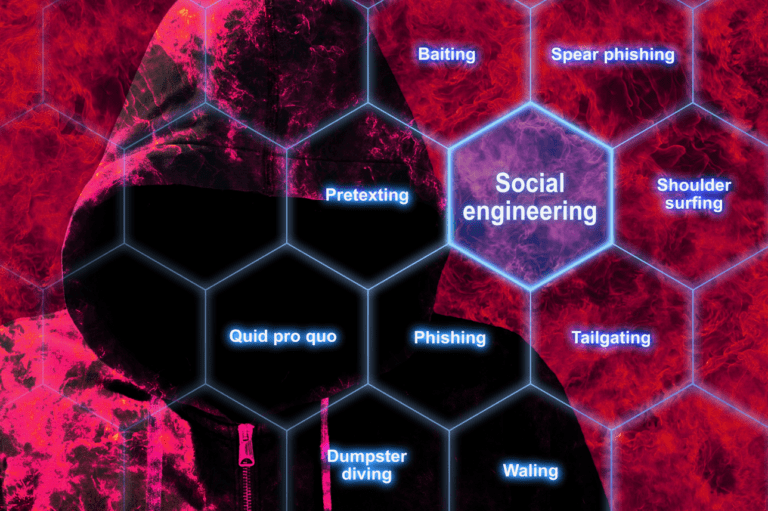Navigating Data Fragmentation in a Digital Universe

In today’s tech realm, data stands as the ultimate currency, representing the vital force of digital interactions. With every click, tap, or swipe, a trail of valuable information is generated, enriching the digital ecosystem for businesses and individuals alike. Yet, amidst this digital abundance, a formidable challenge emerges—data fragmentation. As data multiplies at an exponential pace, it becomes increasingly scattered across diverse platforms, systems, and formats, posing a formidable obstacle to its efficient utilization and management.
What is Data Fragmentation?
Data fragmentation refers to the scattering of data across various systems, platforms, and formats, making it difficult to access, analyze, and utilize effectively. It’s like trying to piece together a jigsaw puzzle without having all the pieces in one place. This fragmentation can occur due to a multitude of factors, including legacy systems, disparate databases, and decentralized storage practices.
So, why does data fragmentation matter, and what can businesses do to address this issue? Let’s delve deeper.
The Pitfalls of Data Fragmentation
Imagine you’re a marketing manager tasked with creating a comprehensive customer profile to tailor personalized campaigns. However, crucial customer data is spread across different departments and systems within your organization. This fragmentation leads to inefficiencies, inaccuracies, and missed opportunities. Without a unified view of your data, you risk making decisions based on incomplete or outdated information, hampering your marketing efforts, and ultimately impacting your bottom line.
Moreover, data fragmentation poses significant challenges in terms of compliance and security. With data scattered across multiple platforms, ensuring regulatory compliance becomes a Herculean task. Additionally, fragmented data increases the risk of security breaches, as it becomes harder to implement robust security measures consistently across disparate systems.
Strategies to Combat Data Fragmentation
While data fragmentation may seem like an insurmountable obstacle, businesses can adopt various strategies to mitigate its impact and harness the power of their data effectively:
1) Data Integration Solutions: Investing in robust data integration solutions is paramount for consolidating disparate data sources into a centralized repository. Whether through ETL (Extract, Transform, Load) processes or modern data integration platforms, organizations can streamline data flows, break down silos, and create a unified view of their data assets.
2) Cloud-Based Data Management: Embracing cloud-based data management solutions offers scalability, flexibility, and accessibility, helping organizations overcome the limitations of on-premises infrastructure. Cloud platforms provide centralized storage, seamless collaboration, and advanced analytics capabilities, enabling businesses to harness the full potential of their data while minimizing fragmentation.
3) Master Data Management (MDM): Implementing MDM strategies allows organizations to establish authoritative sources for critical data entities such as customers, products, and suppliers. By defining data governance policies, standardizing formats, and eliminating duplicates, MDM facilitates data consistency and accuracy across the enterprise, reducing the impact of fragmentation.
4) Data Governance Frameworks: Adopting comprehensive data governance frameworks ensures that data assets are managed, protected, and utilized in accordance with regulatory requirements and organizational policies. By establishing data stewardship roles, implementing access controls, and enforcing data quality standards, businesses can mitigate the risks associated with data fragmentation while maximizing its value.
5) AI and Machine Learning: Harnessing the power of AI and machine learning algorithms can facilitate data unification, anomaly detection, and predictive analytics. These technologies enable automated data categorization, entity resolution, and pattern recognition, allowing organizations to derive actionable insights from fragmented data sources with greater efficiency and accuracy.
Partnering With a Trusted MSP
In an era defined by data-driven decision-making, overcoming data fragmentation is not just a competitive advantage; it’s a strategic imperative. By embracing integration, cloud computing, master data management, governance, and advanced analytics, businesses can navigate the complexities of data fragmentation and unlock the full potential of their data assets. With the right tools, strategies, and mindset, organizations can crack the code and harness the transformative power of their data, turning fragmentation into opportunity, and complexity into clarity.
Consider partnering with Entre Technology Services as your MSP. The protection and management of your business’ critical data is critical to its success. Here at Entre, we are guided by three core values that encapsulate our ethos: Embrace the Hustle, Be Better & Invest in Others. These values serve as our compass and are what guide our business model and inspire us to create successful and efficient solutions to everyday IT problems. Contact us for a free quote today!






